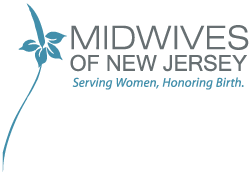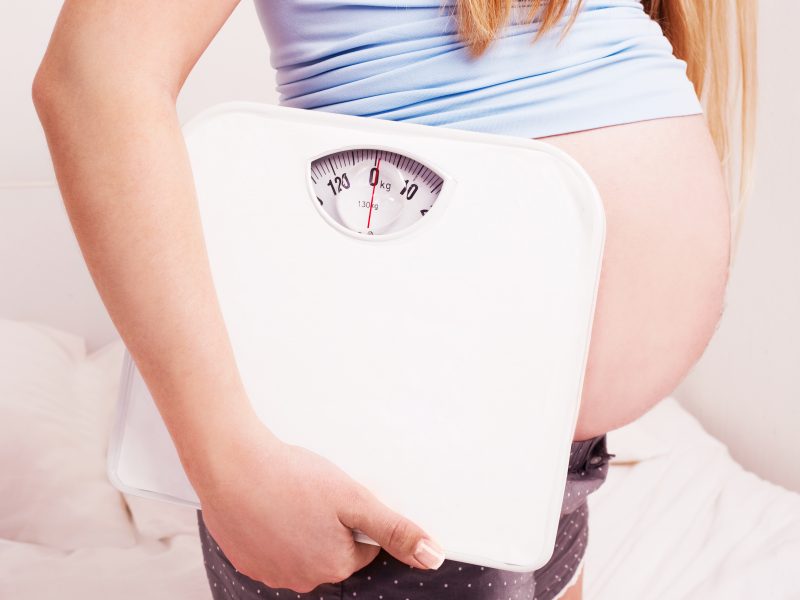Our American culture still promotes the idea that a pregnant woman can eat as much food as she wants and should satisfy every craving she feels because the baby needs it. Consider the following points when making food choices for the next 9 months and to avoid excessive pregnancy weight gain.
It Isn’t How Much You Gain, it’s What You Ate to Gain it
Excessive Pregnancy Weight Gain is Often Associated with:
- Too Many Carbohydrates – You only need 6 servings per day
- Sweetened Drinks – Juices, fancy coffee drinks, sweetened iced tea and soda are NOT a good choice in pregnancy. Think of it as intravenous sugar straight to your baby!
- Processed and Fast Foods – Our bodies are not intended to process the chemicals in these foods and it many times leads to weight gain that is excessive and unexpected
You CAN Get Too Much of a Good Thing
Many pregnant women eat good diets but have excessive pregnancy weight gain. They eat vegetables daily, mostly organic foods and they never drink soda. But upon closer inspection we can identify that, while their diet is rich with nutrients, it is also calorically excessive. Having organic vanilla yogurt with nut-filled granola and a banana is a “healthy” breakfast but calorie-laden. This type of diet many times results in a baby growing larger than its genetic potential.
Don’t Blame the Baby
Women will tell me that their “baby wants potato chips.” Please do not blame your unhealthy food choices on the baby. I assure you that the baby wants you to eat vegetables and nuts and chicken not ice cream, French fries and barbequed ribs. Remember that your child’s palate is being developed in utero; this is because your amniotic fluid tastes like the food you eat. When you consider eating junk food, imagine feeding that same food directly to your precious child.
Pregnancy Diets are “Nutritive”, Not Caloric
Overall, most American women eat plenty of calories to support a pregnancy. They do not need to increase their food intake, just “re-arrange” it. When a woman is pregnant, every bite of food counts. To consume enough protein, vitamins, minerals, fiber, essential fatty acids and water everyday without excessive calorie intake and pregnancy weight gain, a woman needs to carefully plan her week to include a variety of nutritionally dense foods. When a woman works to include all the nutrients that she needs for the day, many of the low-nutrient, high-calorie foods will be “crowded-out” of her diet.
You ARE eating for 2 but One of You is REALLY small!
Likely, one bite of food supports your baby in the first trimester! Pace yourself. Weight gain in pregnancy should be about 10# in the first 20 weeks then 1# a week up until 28 weeks, and then ½ # a week up until birth. This pattern of weight gain should keep the pregnancy healthy but not too much weight to lose postpartum.
Vitamins Don’t Replace FOOD
Eating an actual carrot or Brussel sprout supplies your body with nutrients in a balance that your body can absorb and use well. Vitamin supplements are not nearly as bio-available as FOOD!
Carrots supply: vitamin A (in the form of carotenoids), biotin, vitamin K, dietary fiber, molybdenum, potassium, vitamin B6 and vitamin C, manganese, niacin, vitamin B1, panthothenic acid, phosphorus, folate, copper, vitamin E and vitamin B2.
Brussel sprouts supply: vitamin C, vitamin K, folate, manganese, vitamin B6, dietary fiber, choline, copper, vitamin B1, potassium, phosphorus and omega-3 fatty acids, iron, vitamin B2, protein, magnesium, pantothenic acid, vitamin A, niacin, calcium and zinc. Brussels sprouts also contain many disease-fighting phytochemicals.
Some Fat Stores are Not Visible but Vaginal
When Fat is Stored in Vaginal Tissues During Pregnancy, There are 3 Negative Effects:
- The fat stores make the vagina LONGER. This extra vaginal tissue can make the delivery more difficult. The baby clears the pelvis but must then traverse the vagina. This generally happens all at once.
- Cervical exams more uncomfortable because the cervix is further than the length of most provider’s fingers.
- A vagina “full” of fatty tissue can be a reason a baby can’t move down or rotate on the pelvic floor. It can also be a cause of excessive tearing when it does move down.
Not Only Might the Baby be Big at Birth but for the Rest of Its Life!
Excessive pregnancy weight gain is directly associated with babies that are large for their gestational age. In addition, the unneeded pounds can alter the baby’s genes to make him more likely to be obese as an adult. This epigenetic effect can be passed down 7 generations, so make your food choices carefully.
This information is not intended to make any woman feel guilty about her weight gain or diet, in this or prior pregnancies, but to provide incentive toward making good, healthy choices for yourself and your family. Bon Appétit!









